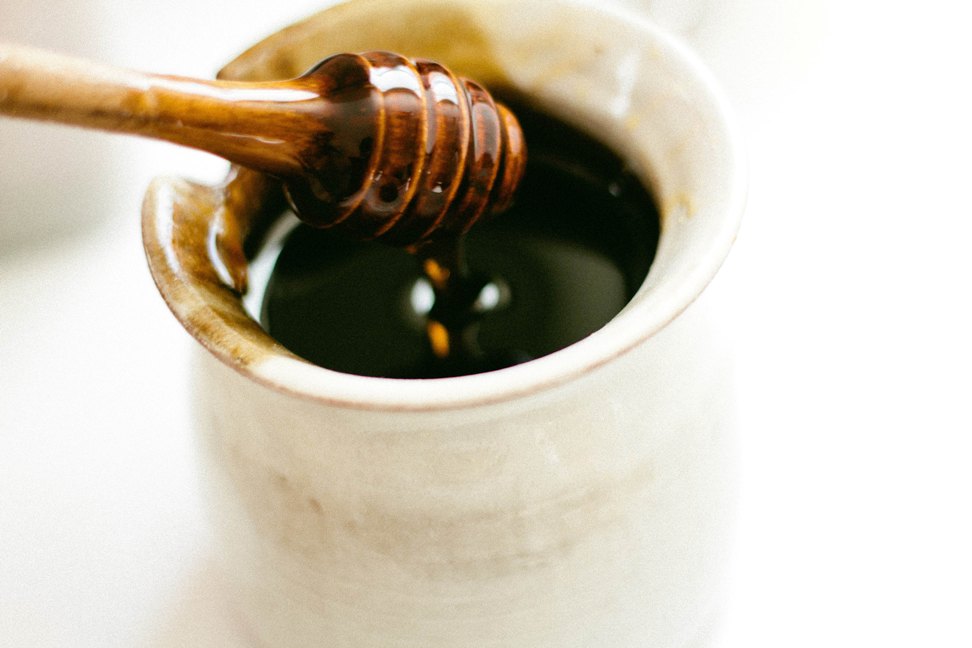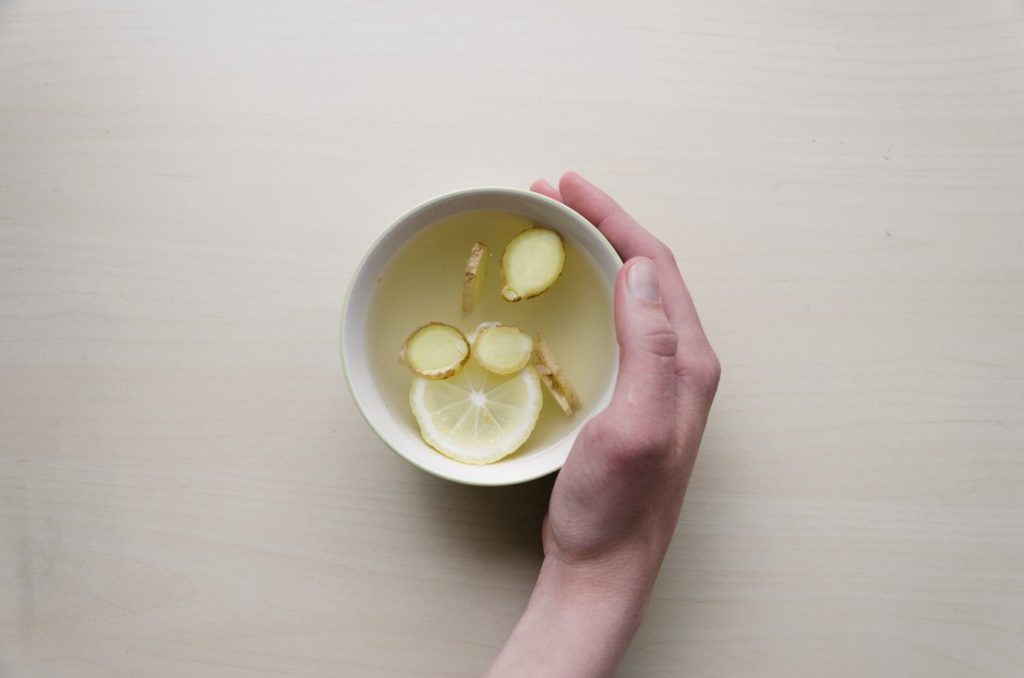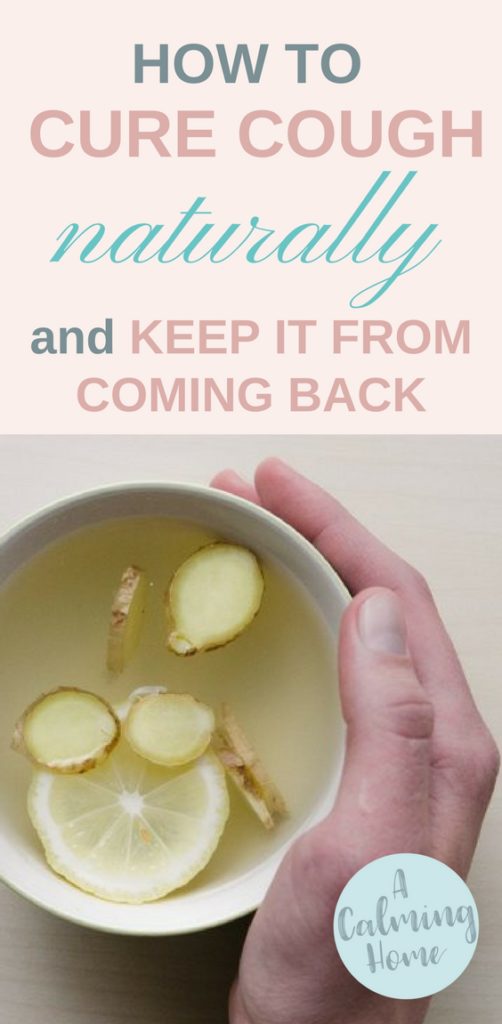
I knew it was a bad idea to share a cup of water with my daughter who had just caught a cold. I just had to insist that I’m a grown woman who wouldn’t catch it easily from a teeny child.
I mean… c’mon.. it’s a virus!
It didn’t take long before my throat started to itch and scratch and hurt. I had trouble swallowing in the middle of the night because it felt like I had a lump of fire caught in my throat.
Normally, sustained coughing like this is caused by a bacterial infection which may require antibiotics.
I try to minimize the amount of chemicals that go into my loved ones’ bodies, so I firstly look at home remedies when treating coughs due to colds, allergies, and sinus infections.
If you’d search over at Pinterest, there are hundreds of great recipes that you could try right now.
But most of these recipes, I found, call for special herbs or redundant ingredients that only add to the cost or complexity of preparation.
Time and time again, I’d go back to the tried and tested methods and recipes that have been passed down my family to help with minor health issues like this.
Now I’m sharing these traditional and natural remedies so you can try them with yours.
This post contains affiliate links for your convenience.
For more information, see my disclosures here.

HONEY
This ingredient is an age-old remedy for getting rid of a cough or sore throat. It’s the first thing that pops into anyone’s mind when they think of a natural remedy for good reason.
Be warned though that not all honeys are created equal. Use the finest honey you can afford to get any medicinal benefit from it.
I like having genuine Manuka Honey on hand because of it’s amazing nutritional profile. It’s best if you can get one with UMF (Unique Manuka Factor).
Unique Manuka Factor is a guarantee that the anti-bacterial strength of the Manuka honey is of medicinal quality.
- with Lemon
You don’t even need a recipe because it’s as simple as mixing the two together to create either a powerful shot of vitamin C & natural anti-bacterial enzymes, or mixing it in with warm water to create a pleasant drink.
You can spike it with a bit of bourbon or whisky for a good night elixir.
- with Apple Cider Vinegar
Apple Cider is a great anti-oxidant and also high in acetic acid. This means it can help kill lingering bacteria in your throat. (Make sure you use the one with “the mother”)
Just add two tablespoons of apple cider vinegar to a cup of warm water and you’ll have a powerful brew to relieve your cough.
- with Garlic
Fresh garlic is a renowned antimicrobial and expectorant. When you mixed with honey can be very effective in fighting the bacteria and soothing an itchy throat.
Simply place ½ teaspoon chopped garlic in a tablespoon and fill remaining area with raw honey and swallow all at once.

ORANGE or PINEAPPLE JUICE
Others would argue that citrus fruits may only aggravate the cough, but it’s actually good for you if you know how to drink it properly.
The problem usually crops up when you drink cold juice instead of diluting it in warm water. By doing the latter, it warms your body and helps loosen the mucus in your throat and might even suppress your cough.
Orange is known to be a good source of vitamin C, but it also contains folate which helps our immune system fight against illnesses and prevent respiratory problems.
It’s also rich in anti-oxidant vitamin A which controls infection and pleghm. But don’t drown yourself in orange juice because our body could only take so much vitamin C before we start having stomach pains and diarrhea.
Pineapple also contains high amounts of vitamin C and antioxidants. But I’m giving it more praise because it contains the anti-inflammatory enzyme called bromelain.
When I had a surgery done a few years back to have a breast cyst taken out, I drank fresh unsweetened pineapple juice everyday which I think helped me recover quickly.
Just a word of caution though: ask your doctor if it’s ok to consume pineapples if you’re taking medicine that could have an adverse effect when combined with bromelain (such as blood thinners or antibiotics).
PEPPERMINT
Peppermint is my favorite essential oil for diffusing. It freshens my home, repels insects, calms me down, boosts my mood, and helps me breathe better. But you can also diffuse it by adding a few drops into hot water to create a steam bath and putting your head (covered with a towel) just above it.
Another easy way to relieve your chest congestion is to drink peppermint tea.
Note: I use essential oils a lot so I figured I might as well become a member of Young Living. No, I’m not going to sell to you, but if you’re going to sign up anyway (or hoard a lot of EOs for personal use like I do), you might as well be a part of my team huh. 🙂
THYME or GINGER
If peppermint is not really your cup of tea (excuse the pun), you can also drink thyme or ginger tea. I’ve never personally tried thyme tea, but ginger tea is amazing!
It has antihistamine and decongestant capabilities and I drink this whenever I need to feel stuffy, or like I’ve strained my voice, or whenever I want to feel warm and toasty.
At first taste, you might not like the “spiciness”, but then you’ll notice you’ll slowly feel warm as it increases your blood flow, and consequently, your body temperature.
For thyme tea, add 2 tsp of crushed thyme leaves to 1 cup of boiling water and let it steep for 10 minutes. Strain.
For ginger tea, simmer a few slices of fresh ginger in a pot with 2 cups water for 10 minutes. Strain.
Optional: For both teas, you can add 1 tablespoon of honey and a squeeze of lemon to boost its anti-bacterial power. I also find it yummy to add a dash of cinnamon (also an anti-bacterial) to the ginger tea.
SALT WATER
It’s cheap and readily available; it’s as easy as adding 1/2 teaspoon of salt to a cup of warm water.
I remember when I was young, my mom made me gargle with warm salt water whenever I have mouth sores. Apparently, it can also help alleviate a stubborn cough.
According to Dr. Philip T. Hagen in The Mayo Clinic Book of Home Remedies, “the saline solution, can draw excess fluid from inflamed tissues in the throat, making them hurt less…while gargling loosens thick mucus, which can remove irritants like allergens, bacteria and fungi from the throat.”
WATER
I think this is common sense already. When you drink plenty of liquids, you loosen the mucus by thinning it out and keeping the membranes moist.

How to prevent coughing
“An ounce of prevention is worth a pound of cure“
Learning how to prevent a cough is as valuable as learning how to treat it. Here are some things you need to keep in mind:
- Stay hydrated. If you find water too boring, you can experiment with fruit or vegetable infused water to keep things interesting.
- Don’t infect others. In Japan, people who are sick uses cute masks to prevent them from transferring their viruses to other people. You might want to do this too in consideration of others (especially when you have small children in the house).
- Avoid sick people. Just as you don’t want to cause sickness to others, you don’t want to catch their viruses too.
- Sanitize high traffic areas and highly used objects. This could be in your home, work, or school…doorknobs, toys, remote control, or mobile phones.
- Wash your hands often. It can be after every task which contaminates your hands (smoking, coughing, after using the toilet, etc.) or before handling food.
So, which method are you already doing? Any favorite remedy you always go back to?






